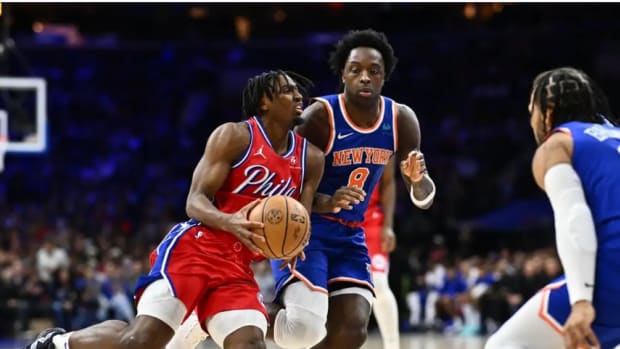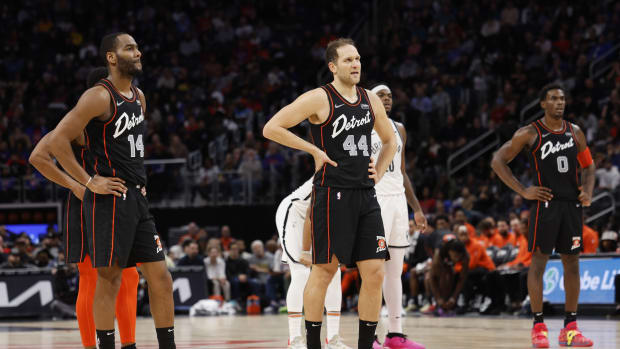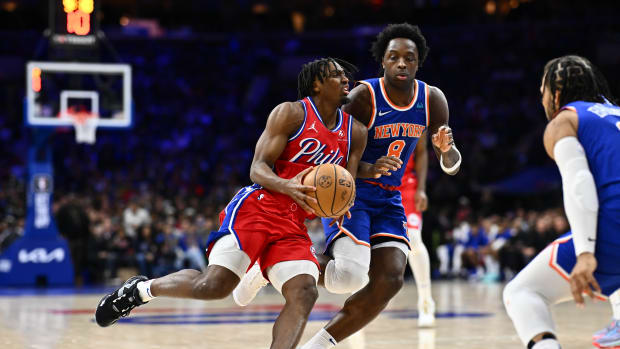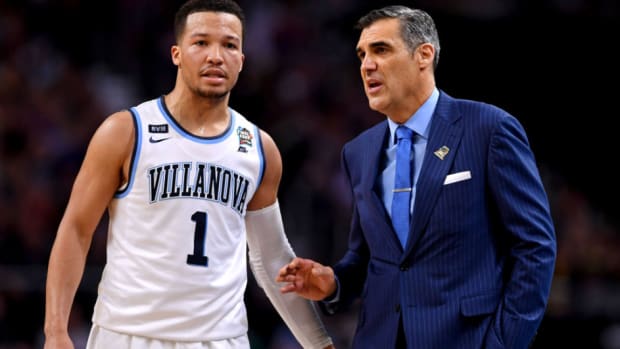What Firing David Fizdale Will Teach Us About The Knicks
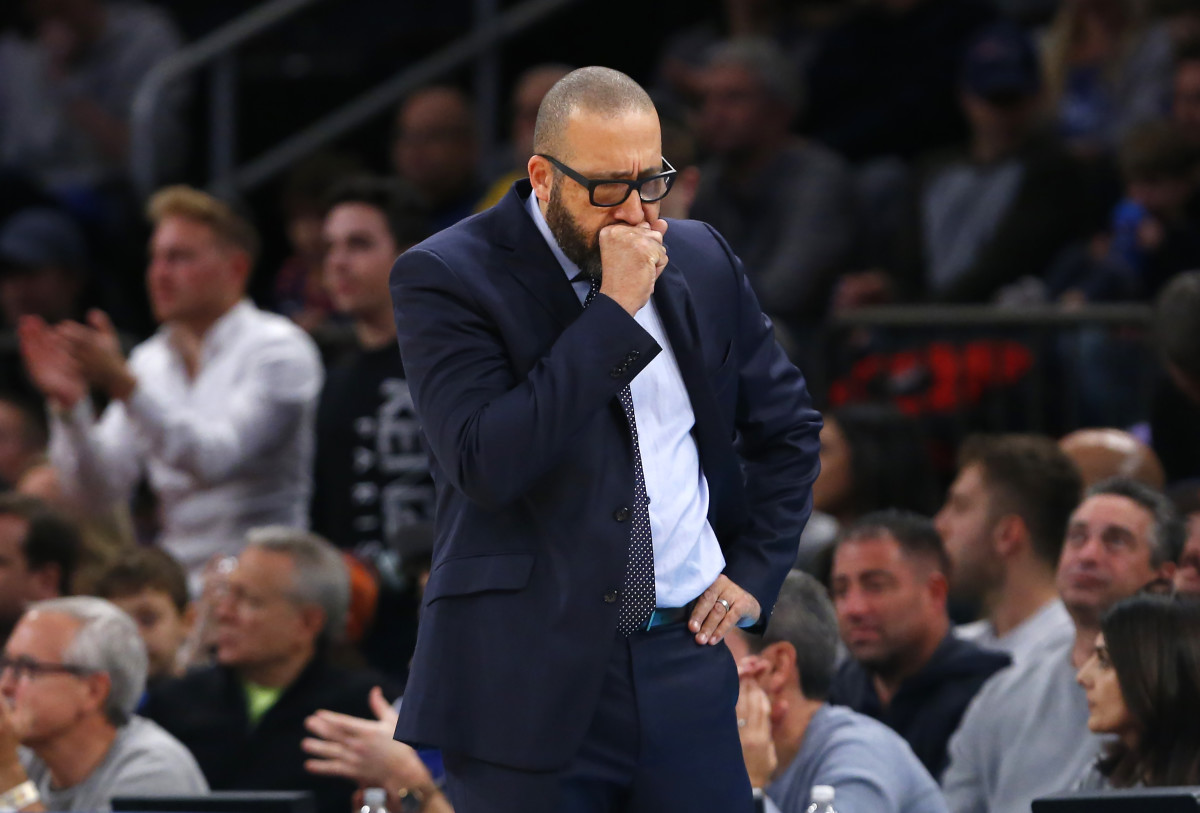
No one can claim to be surprised by the Knicks firing David Fizdale, a decision reportedly executed on Friday afternoon, but telegraphed weeks ago, when executives Steve Mills and Scott Perry expressed disappointment over a 2-8 start in a rare in-season press conference.
When a 2-10 record follows that start, firing the coach seems inevitable.
But what has been absent in the conversation over David Fizdale, a now-moot debate among the fan base and presumably the front office as well, wasn't whether the team is failing to compete most nights in the NBA. Blowout losses to the Denver Nuggets and Milwaukee Bucks are examples of a wide disparity in talent yielding predictable results. But it isn't really possible to argue that these Knicks, at 4-18, are exceeding any expectations, that any of the team's key young players are maturing faster than expected. No benchmark, real or imagined, has been exceeded so far this year, with the exception, from this perspective, of how completely the roster of a 4-18 team remained in their coach's corner.
Still, this is a results-oriented business, particularly when those making decisions aren't happy, and Fizdale's firing followed naturally from whatever the process that resulted in the current roster presented.
Based on my conversations with Fizdale, I suspect he's long since made peace with this. He's an excellent basketball mind, and he knows the hand he'd been dealt with this roster, combined with the apparent expectations held by some portion of the team's top brass made his situation untenable. He'll get paid, and well, for the next few years, regardless. He clearly gave everything he had for as long as he had the position. But he's as unsurprised as anyone.
Here's the part of the Fizdale debate that always struck me as problematic. It is absolutely possible to identify things Fizdale was doing that didn't work. Lineups, play-calling, you name it: a 4-18 topline yields many, many inferior results beneath.
But what has never been convincing is the idea that there's some alternative coaching-specific path that turns this Knicks team into anything approaching a playoff contender. Is there a coach whose alchemy makes this roster 11-11? Seven more wins? That's playoff contention in the broadest sense, but it still feels beyond what a team missing its most stable playmaker in Elfrid Payton for most of the season, a team without its only real defensive center in Mitchell Robinson due to injury for some games and fouls for nearly all in which he played, a team without a logical first option for scoring and thus which turned to Julius Randle and Marcus Morris Sr., who gamely provided what they could, is an 11-11 team in today's NBA.
The same is true, and there's a more reasonable chance of improvement here, in seeing what production comes from RJ Barrett and other young players on this roster. Even this won't be a full answer: no one will ever be able to separate something Barrett goes on to do in, say, January from what he learned under Fizdale and his staff. Truly identifying an individual coach's impact on a player is impossible. We will see different substitution patterns, perhaps, different rotations, different offensive sets. In this way, we can set about finding an answer to whether this moment helped the Knicks get to wherever it is they are striving to go.
Still, we won't get the answer to this, not really. There's going to be another 60 games in this NBA season, and as I've written in this space, it needs to be dedicated to the evaluation and development of RJ Barrett, Mitchell Robinson, Kevin Knox, Frank Ntilikina and, depending on how the brass think he fits, Dennis Smith Jr. The latter two are the only ones whose positions conflict much at all, so massive minutes for the first four together will make sense for a franchise that needs to figure out exactly what they are and who they have.
A real, qualitative answer to "Was Fizdale a problem?" would require many seasons, a simulation, with plenty of coaches and endless permutations. We'll get to see, however, at least one.
And while that won't tell us much about the past, it means the Knicks, over the next few months, have chosen a different future. And we're all about to find out what that means.

